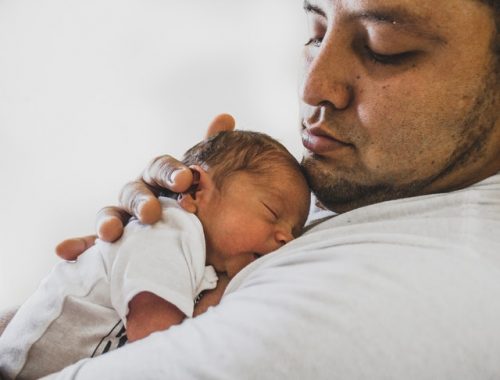I grew up seeing my father with a nicely lit cigarette between his fingers or in his mouth almost every hour. He told me that he had been consuming nicotine by smoking since he was 15 years old. Back then, he did it as a dare, but he tried it again and eventually got hooked.
Dad said that he spent his allowance on nice cigarettes filled with nicotine and would sneak food from home not to need to spend a dime for lunch at school.
Little did he know the depression this would ensue in his life. He also told me that his parents had an idea that he was smoking, but they never tried confronting him about his bad habits.
My grandparents tried not to talk about my dad’s smoking because they thought it was just part of his growing-up process. Dad also said that when his mother first caught him with smoke in his fingers, Grandma didn’t even ask what he was not doing nor complain about it.
He said she just stared at him and never said a word. My dad understood that it was supposed to be a negative approach to make him stop. But since my grandma didn’t say anything, he does not feel he was obliged to turn it off and throw it away. Dad said that his parents didn’t try to talk him out of it as if they allowed it.
I was honestly confused about the whole approach, so I asked Grandma about my dad’s smoking habit. My grandmother told me everything, and I understood better. She said that my father when he was in high school, dealt with a lot of bullying incidents at school. She was not brave enough to talk to my dad about his problems because she told me that she didn’t know what to say. She was so adamant about the whole punishment thing because she knew that my father was having a hard time.
When she first caught her dad smoking, she was against it. But since my father is not used to expressing himself and is used to taking matters into his own hands, my grandma didn’t think her son would need any help. When Dad got hooked on smoking, she just accepted it because she said she was too weak to confront his child and was afraid that talking him out of it might cause a mental and emotional outburst.
I asked Grandma what Grandpa thought about it. She just raised her shoulder. So I asked Grandpa. At first, he was not comfortable talking about it. But after a couple of annoying questions, he explained everything and started telling stories. That is when I found out that my grandpa tried to talk to my father about his habits. But since he was a smoker himself, the dad didn’t listen to him and, unfortunately, used it against him.

I was not against my father’s smoking in the beginning. He was always “surrounded by clouds” and could make different shapes with them, so I thought it was fantastic. Truth be told, whenever my friends and I would do pretend play, I would often hold a pen or crayon between my fingers and pretend to take a puff. It is as if that whole smoking nicotine scenarios were normal to me that I wouldn’t need to tell my father or anyone to quit or stop smoking.
However, when I was in third grade, I got diagnosed with asthma. My parents were surprised about it because I did not show symptoms until I was nine years old. All I could do then was nebulize and stay away from exhausting activities and fumes. This diagnosis meant that Dad would need to be a few meters away from me if he wanted to smoke, and then he would have to shower before coming close to me so that I wouldn’t get a whiff of the cigarette nicotine.
Despite that, my father was fine with the new arrangement. He would do anything to make me safe – that’s how much he loved me. But deep inside, I knew that he was glad that we found a way for him to continue smoking. He would have stopped in a heartbeat if that was necessary for my well-being, but I was also sure that he did not want to do that.
Then, The Inevitable Happened
When my asthma became controllable through exercise and moderation, my parents decided that we were all prepared for another baby in the family. They got pregnant quickly, and my little sister, Samantha, arrived in no time.
Unfortunately, Samantha came as a premature baby with congenital heart disease. Her condition made her so fragile that my mother had to wear a sterilized gown that doctors wear during surgeries, as well as gloves, a mask, and a hair cap, before holding Samantha. As for my father, since the doctor found out that he was smoking, they advised him to look at the baby through the glass wall because the smell might not be good for Samantha.
The news obviously devastated my father. Seeing your child in such a vulnerable state and not even being able to hold her hand could make anyone’s heartbreak. Hence, Dad made the abrupt decision to quit smoking. We were all unable to believe it at first, but then my father made a show of ransacking his stash and crushing every stick before throwing it out. He also had the car and the entire house thoroughly cleaned to get rid of the smell of cigarettes, which seemed to stick to all the walls as Dad smoked in there long before I was born.
When The Depression Reared Its Ugly Head
I thought that my father’s smoking problem ended when he dumped his cigarettes in the trash. However, no one was prepared for the withdrawal symptoms that he experienced afterward – not even him.
Dad was finally allowed to hold Samantha on the day that she got released from the hospital. He also got a paternity leave so that he could spend time with all of us. It was an excellent choice, considering Mom needed help at home while her surgical wound from the C-section she went through was still healing. She trusted my father to look after everyone, including the house.
At first, my grandmother from my Mom’s side offered her help, but Dad said he could do everything independently. He tried to prove that by making my breakfast in the morning and preparing my lunch and snacks for school. Then, he would go outside for 15 minutes with the baby so that Samantha could get her daily dose of vitamin D. After that; he would start cooking for Mom, clean the house, wheel out the garbage bins, and do everything else that Mom used to do.

By the end of the second week, though, Dad began to mess up with his activities and stuck with tobacco use. One time, he slept in and forgot to wake me up, so he had to drive me to school and buy my breakfast, lunch, and snacks at the local gas station. He also left the baby’s feeding bottles boiling for hours, leaving him with melted plastic in the pot. My father finally broke down and cried when he couldn’t make Samantha stop crying one midnight, but he didn’t want to give her to Mom, insisting that he could handle her. In the end, Dad and the baby cried all night. Little signs like these highlighted his struggle with nicotine and depression.
The next day, Mom made Dad believe that we would go hiking since she was already feeling better. Instead, she drove to a psychologist’s clinic to have Dad’s mental health checked. It turned out that he was dealing with postpartum depression (Yes, it exists in men, too!), and nicotine withdrawal could be worsening symptoms of depression.
Postpartum depression is more commonly experienced by mothers, but fathers also get depressed. Research has shown that 1 in 10 dads experience postpartum depression and anxiety. Some reasons why they get depressed is because of a lack of support, sleep deprivation, hormones, a feeling of disconnection from the mother and baby, and more.
Knowing more about their link will make us understand depression better. Below are the Frequently Asked Questions and Answers about the link between depression and nicotine.
Can Nicotine Cause Depression And Impact Mental Health And Life?
Yes, nicotine can cause depression. According to research, smokers have a higher chance of developing depression than non-smokers.
Does Nicotine Act As An Antidepressant?
Yes, nicotine technically acts as an antidepressant and helps some of your brain areas. However, constant nicotine use can be harmful to your mental health.
Why Does Tobacco Make Me Sad?
Nicotine makes you sad and depressed because your dopamine level drops after a while when its effect goes away.
Is Smoking Good For Mental Health Depression?
Smoking can be good for depressive symptoms initially, given that it increases your dopamine level and makes you ‘high.’ However, it cannot do you good if you smoke too often. It may lead to addictive behaviors.
Is Smoking Bad For Depression?
Yes, smoking is bad for severe feelings of depression. That is especially true if you are a chain smoker due to the increased risk of addiction.
Do Cigarettes Help Anxiety?
No, tobacco or cigarette smoking does not help decrease stress, anxiety, and depression. The opposite may feel like it at first, as it makes you somewhat high, but when you come down, you may get more anxious than ever due to nicotine. You experience a higher risk of its symptoms.
Why Do I Get Dizzy When I Smoke?
You get dizzy when you smoke because carbon monoxide hits your system and robs you of oxygen, making you dizzy.
Are Smokers Happier?
Yes, smokers tend to be happier while smoking, considering the nicotine boosts their dopamine level. But of course, too much nicotine can never be a good thing – as it can bring forth depression and other disorders.

Does Quitting Smoking Help Anxiety?
Yes, quitting nicotine use helps decrease your anxiety level.
Does Consuming Tobacco Worsen Anxiety?
Yes, nicotine which is found in tobacco, can worsen anxiety over time.
How Long Does It Last After Quitting Smoking?
You may get depressed mood three days after you quit smoking. Then, it can last up to two weeks.
Why Do You Get Angry When You Quit Smoking?
Experiencing anger after you quit smoking is a withdrawal symptom.
Do You Get Angry When You Stop Smoking?
Yes, some adults get angry when they stop smoking. It is expected since they go through a withdrawal phase. Nicotine withdrawal can be a tough experience.
What Does Cigarette Withdrawal Feel Like?
When you experience cigarette nicotine withdrawal, you feel like you can do anything to get nicotine in your system. That includes eating nicotine gum, sticking a nicotine patch on your body, or even sitting next to a smoker. Then, you may become temperamental for a few days.
How Many Days Does Withdrawal Last?
Nicotine withdrawal treatment may last up to 14 days.
How Does This Dependence Affect Depression?
Does It Go Away?
How Does It Affect Mental Health?
Is Vaping Linked To Depression?
Does Nicotine Calm Anxiety?

Final Thoughts
My father struggled with postpartum depression and nicotine withdrawal for a couple of months. It would have gotten worse if he did not let my mother step in and share his load, which was clearly a little too much for him. He eventually managed to shake off both conditions, and it’s been two decades since the last time that my father had a puff.